Este artículo está también disponible en / This post is also available in: Spanish
Affordable housing is that in which citizens or families can live in security, peace and dignity. Although it is a right enshrined in Article 25 of the 1948 Universal Declaration of Human Rights, almost half of the population of Latin America and the Caribbean (LAC) still lacks access to it. How can this problem be solved?
At the Inter-American Development Bank (IDB), we are committed to ensuring that all Latin Americans and Caribbean people have access to decent housing. That is why we work together with national and local governments throughout the region to offer housing solutions that make it possible to close the housing deficit in a way that is inclusive and resilient to climate change. Last September, we brought together the highest ranked authorities of the Ministries of Housing and Urban Development at the IDB headquarters on the occasion of the 2022 IDB Group Housing Forum. This event gave us the opportunity to reinforce our role as the region’s main ally in overcoming the housing backlog in LAC.
In this blog, on the occasion of the IDB’s participation in the Smart City Expo World Conference in Barcelona, we share some innovative practices that will accelerate the reduction of the quantitative and, above all, qualitative deficits of affordable housing in the region.
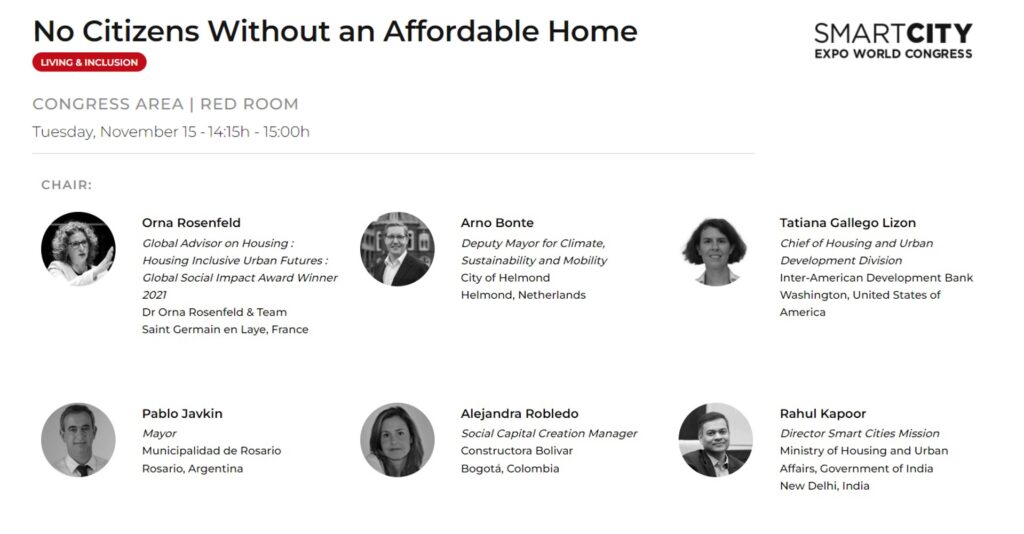
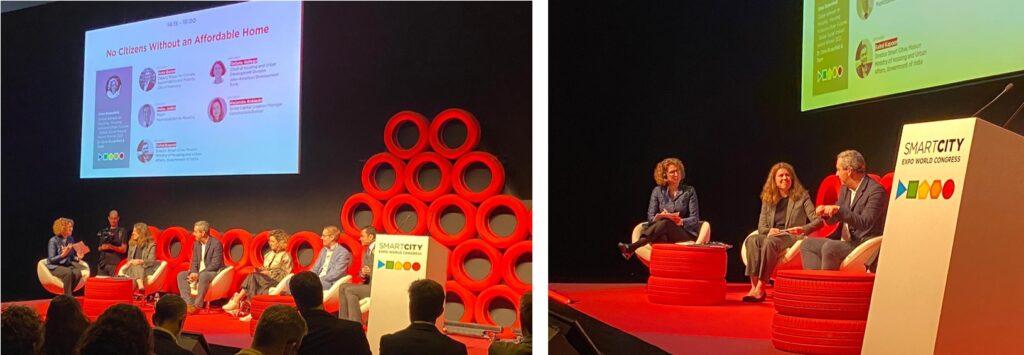
The panel No Citizens Without Access to Affordable Housing took place on Tuesday, November 15 at 8:15 am EST. We will be sharing the recording of the session on this page very soon. On the meantime, keep reading to learn about the main highlights of the discussion.
The housing deficit is not a new problem
The accelerated urban growth of the 20th century, was carried out without organized and sustainable planning. This resulted in social and spatial segregation. In LAC there is a quantitative housing deficit (lack of housing) estimated at more than 23 million households. In addition, there is a qualitative deficit (houses in substandard conditions) of more than 43 million houses. Therefore, reducing the housing deficit is not only a matter of building housing, but also of ensuring that it is of high quality, has access to basic services and is located in accordance with urban planning policies.
In general, Affordable Housing programs in LAC have so far aimed to offer solutions focused on:
- The legal ownership of housing
- The supply of new construction, or new housing
- Attention to segments of the population with formal employment and access to banking services
These efforts, while well-intentioned, have not achieved their primary objective: affordable housing for all citizens in the region. Rather, they have served to further limit the stock of suitable housing available, have left the poorest and most vulnerable groups totally or partially underserved, and have often conflicted with urban policies when it comes to good location.
To put an end to this situation, it is necessary to rethink our model and seek solutions adapted to current needs. This is when we must ask ourselves the following question: what new strategies can we use to ensure, once and for all, that all citizens have access to decent and affordable housing? The answer is simple: let´s be innovative!
How can innovation help close the housing gap?
To solve the problems of the present, we must look beyond the strategies of the past. Therefore, we share seven innovative alternatives aimed at accelerating the reduction of the housing deficit in LAC. We hope they will inspire national and local governments:
1. TITLING THROUGH BLOCK TECHNOLOGY:
To accelerate housing titling, mass regularization and titling exercises can be carried out through participatory community recognition processes. One innovative option is to do this through technologies such as blockchain. The IDB recently put this into practice in Barrio 31 in Buenos Aires, Argentina.
2. FINANCIAL INNOVATION:
New forms of financing can favor access to housing. It can be carried out through guarantee systems for microfinance and/or credit, but also through subsidies for housing improvement, incremental housing or assisted self-construction. A recent example can be found in Ecuador.
3. CONSTRUCTION INNOVATION:
Many homes must be built. To achieve this, disruptive technological innovation can be an effective and resilient option. For example, through the use of renewable and recyclable materials, and efficient construction techniques that could range from prefabrication to industrialization of construction (e.g. Chile).
4. ALTERNATIVE OWNERSHIP MODELS
The demographic changes that the region is experiencing require commensurate responses in the housing sector for segments such as young or mobile migrant populations, or the needs of the elderly.
In response to this expanding market, it is necessary to develop alternatives to acquisition, such as rental housing. In the region, countries such as Chile and Colombia have had a successful experience in providing rental subsidies, for example for young adults with mobility demands, the elderly or the migrant population. These lessons learned are generating interest and momentum in other countries, such as Brazil or Peru.
Another good option to provide flexibility to the real estate market is to implement alternative ownership models. Montevideo, in Uruguay, has had successful cases of cooperativism, while Barcelona, in Spain, has been a good example in the development of coviviend. The latter is a housing access modality that allows a community of people to live in a building without being the owners or landlords, for an extended period of time -from 50 to 100 years- and at a lower price than the market price.
5. UNIVERSAL ACCESS TO HOUSING PROGRAMS:
Promoting affordable housing is not enough. It is essential that, through appropriate urban and social policies, we counter socio-spatial segregation and ensure that our programs are inclusive. The Government of Ecuador, with the support of the IDB, offers a good example of such programs, which systematically incorporate universal access.
6. GREEN BUILDING CERTIFICATION:
The construction sector is fundamental to the decarbonization of our economies, since in LAC alone it accounts for about 30% of energy use and carbon dioxide (CO2) emissions. Therefore, affordable housing should comply with green certification standards that ensure energy efficiency, the use of renewable energy, waste minimization and the promotion of a circular economy (e.g., through the use of recycled materials). The use of materials that are non-toxic and allow adaptation to a changing environment is also recommended
Green certification systems throughout the region (based on both international standards and LEED/EDGE, or local climatic conditions) have advanced in the last decade. They now focus primarily on achieving efficiency (electricity, water and waste reduction) and emissions reduction (use of renewable energy and non-toxic, ethically sourced and sustainable materials) targets.
Adequate housing policies
With up to 75% of all land use allocated to residential living in our cities, adequate housing policies are critical to the development of resilient, inclusive and sustainable communities. Instruments to accelerate and expand the provision of affordable housing in the region must be diversified to respond not only to demographic changes, but also to bioclimatic conditions and exposure to natural disasters.
Do you know of other alternatives to achieve sustainable and inclusive housing deficit reduction? Do not hesitate to share your thoughts in the comments section. We will be very happy to read them.
Related content:
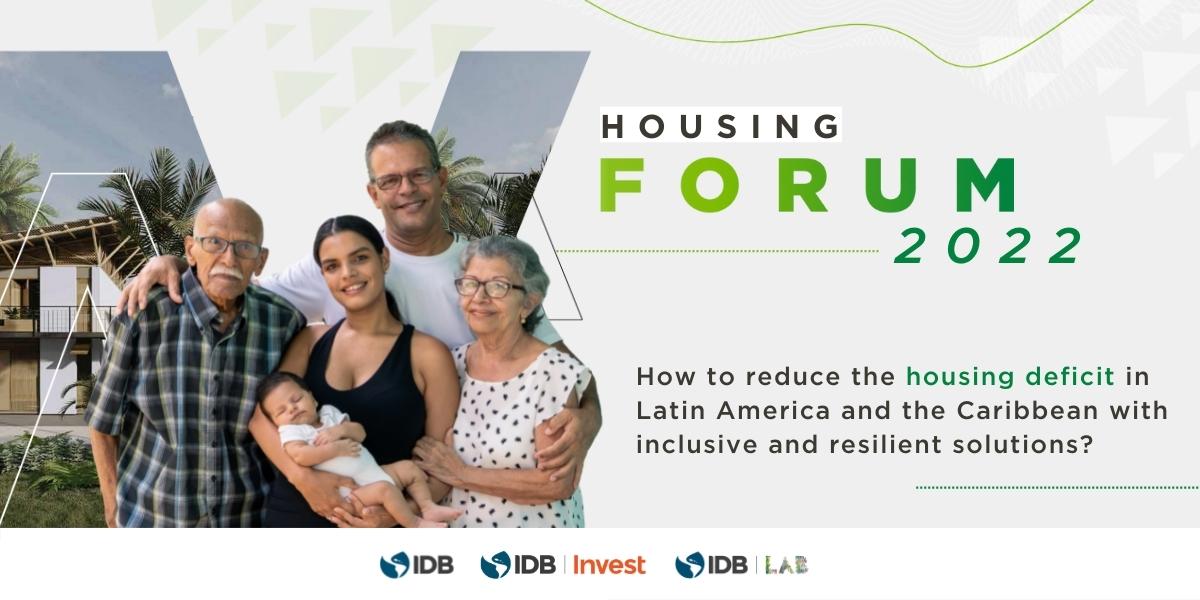
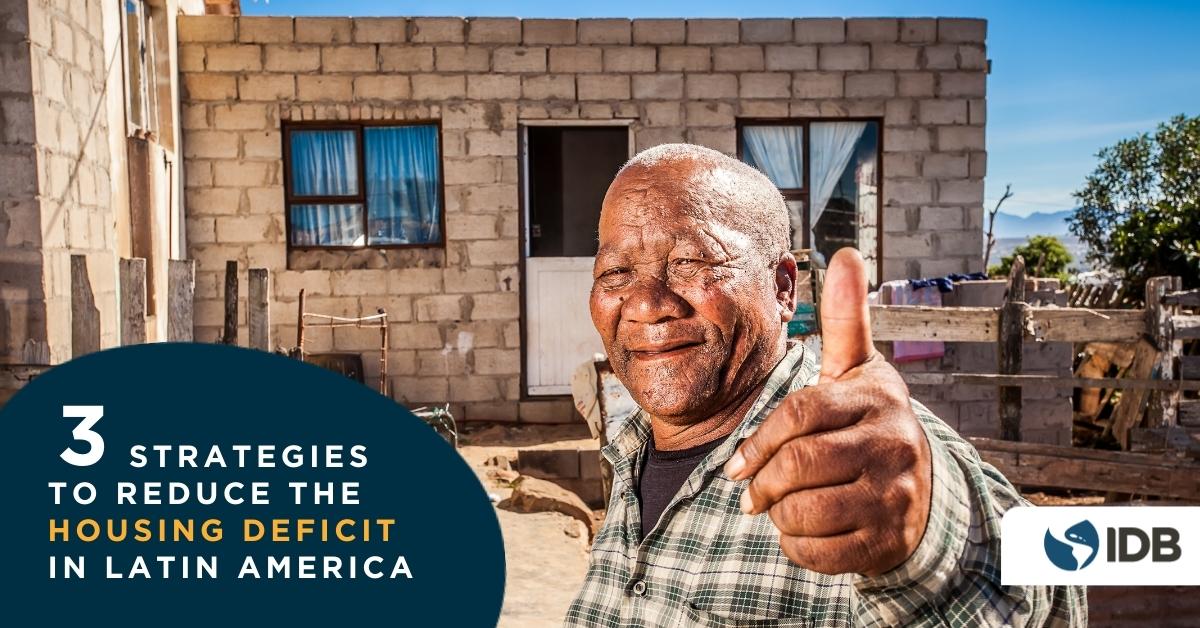
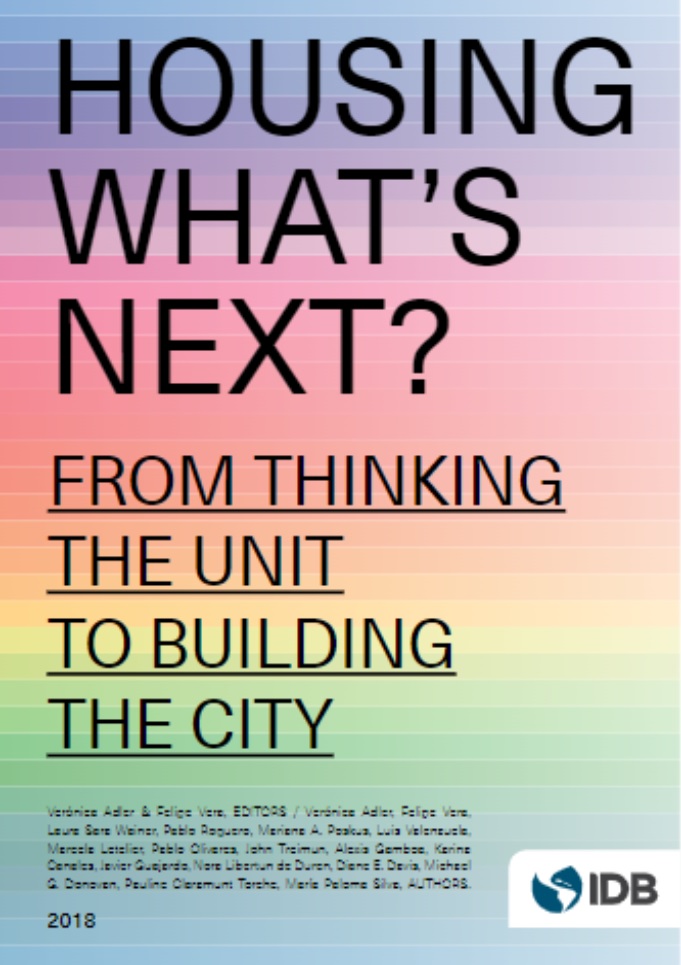
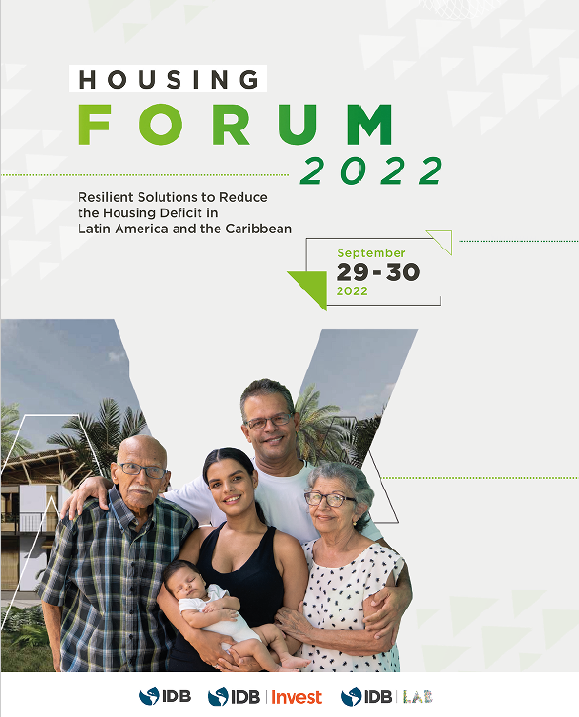

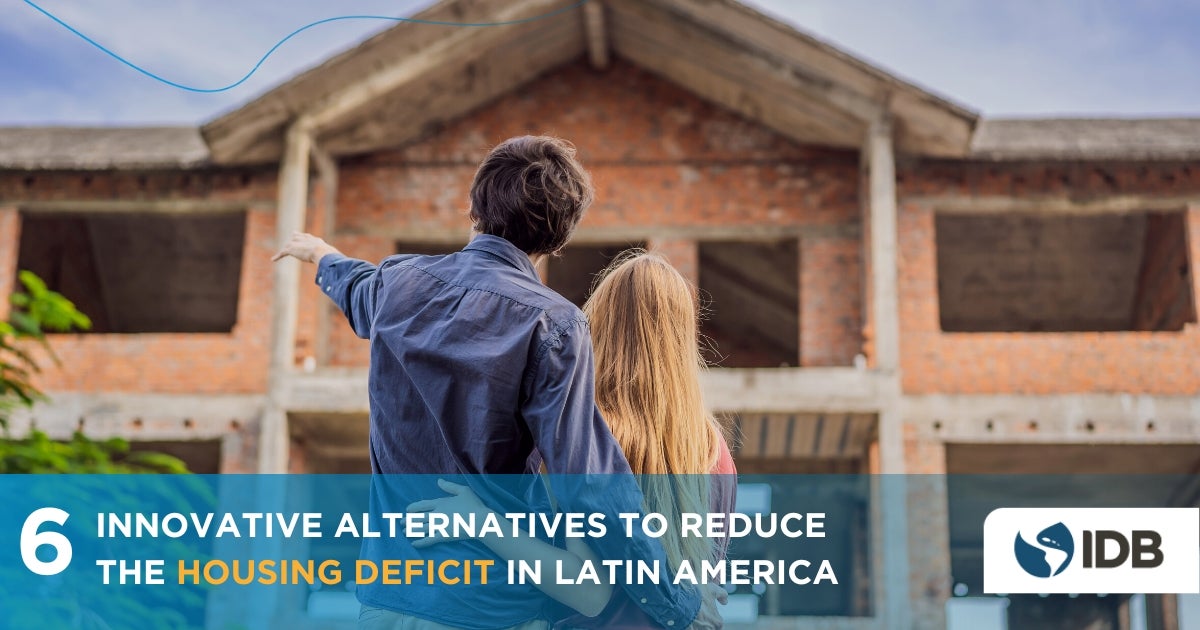
I have an Efficient Housing Solution that I’m currently trying to implement in the LAC. Would you be interested in talking in more detail to see if we can work together?